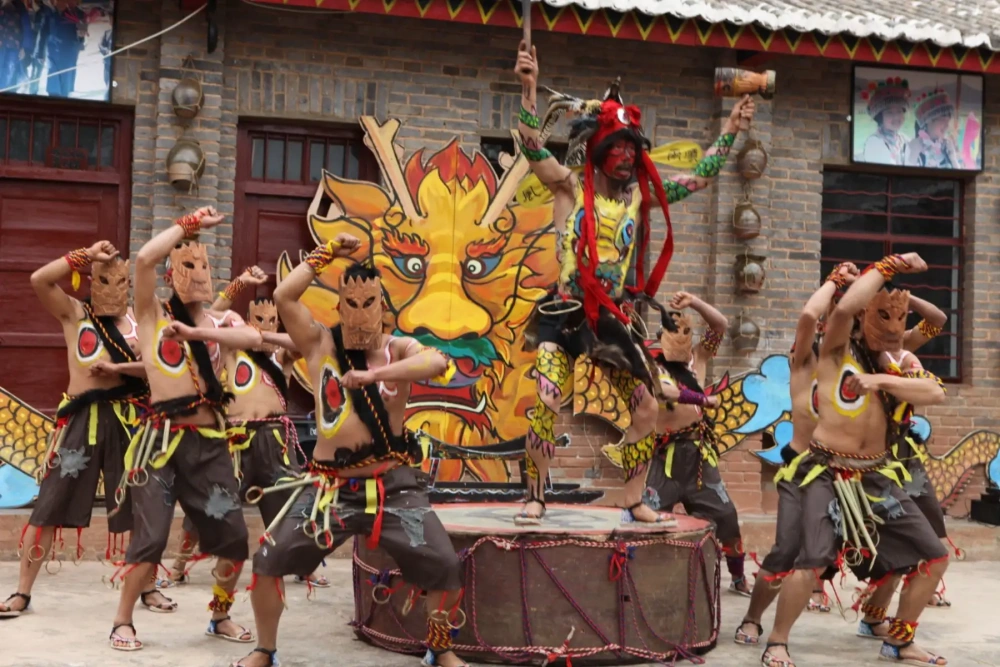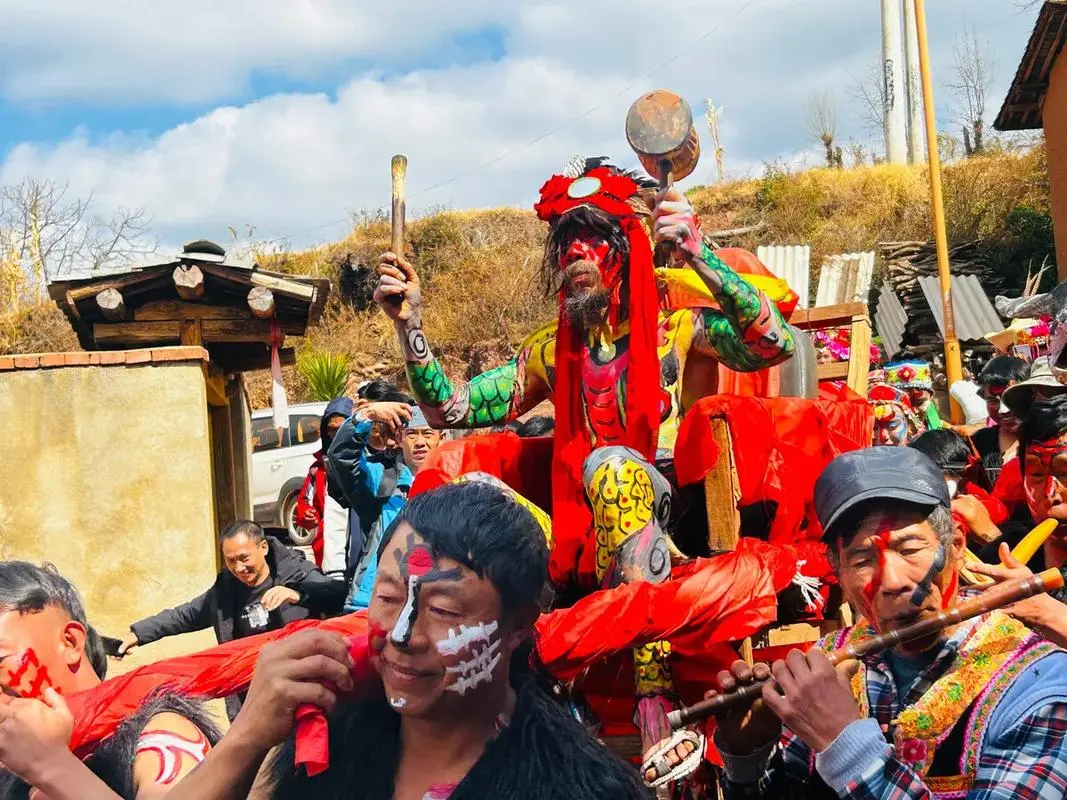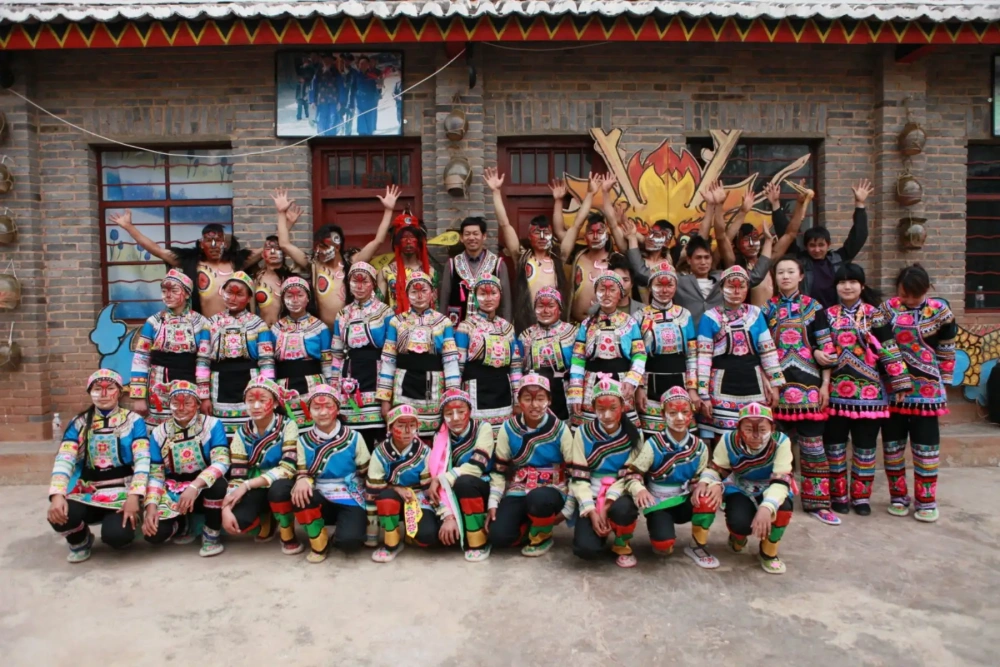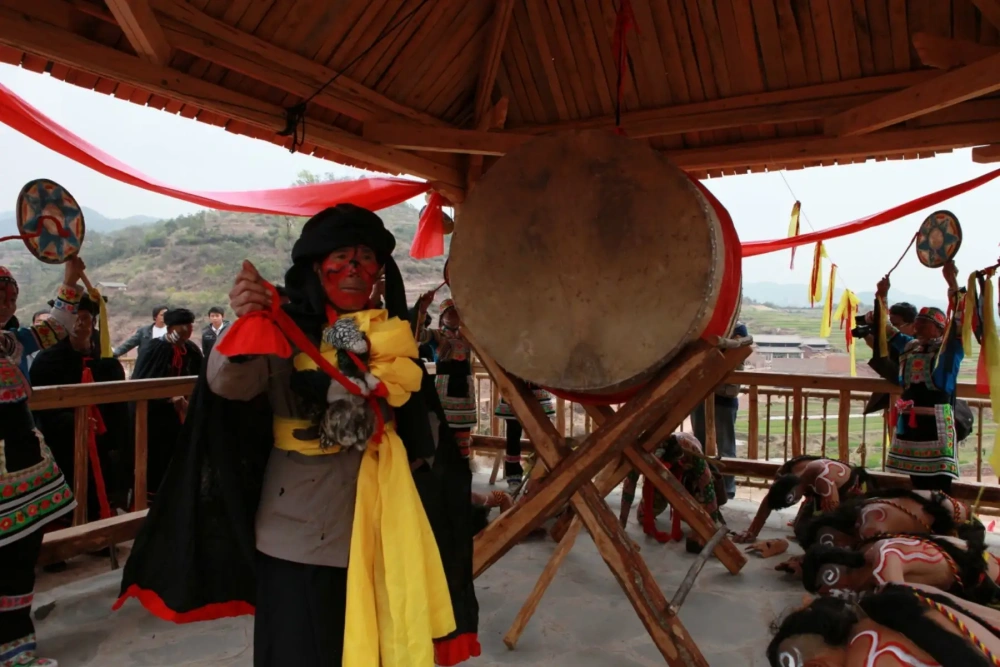The Mute (Yaba) Festival of Yi Ethnic Minority in Xiangyun County, Dali
Chinese Name:祥云县彝族哑巴节
English Name: The Mute Festival of Yi Ethnic Minority in Xiangyun County, Dali
*Date: 17 February
*Place: Qixuan Village of Hedian Town, Xiangyun County, of Dali Prefecture
*Main activities include sacrificial ceremony and “dumb dance” show.
The Mute Festival is a unique folk festival of the Yi ethnic minority, held annually on the eighth day of the first lunar month in Qixuan Village of Hedian Town, Xiangyun County, Dali, Yunnan Province. The “Mute Festival” is recognized as a provincial-level intangible cultural heritage protection project. On this day, Yi people from the village gather to “dance the mute dance,” praying for favorable weather, abundant harvests, and prosperous livestock.
Location
The festival takes place in Qixuan Village, located in Hedian Town, within Xiangyun County, Dali Prefecture.
Main Activities
The Mute Festival features several significant activities, including:
- Sacrificial Ceremony: A central aspect of the festival, the sacrificial ceremony involves offerings to ancestors and spirits, expressing gratitude and seeking blessings for the community.
- “Dumb Dance” Show: One of the festival’s highlights is the “dumb dance,” performed by participants who imitate various animals and nature. This dance reflects the Yi people’s relationship with the environment and their appreciation for its beauty.
Cultural Significance
The Mute Festival is not only a celebration of Yi culture but also serves as a means of preserving and passing down traditions to future generations. It fosters community spirit and strengthens social bonds among the Yi people.
Customs
The Mute Festival has a history of over a hundred years. In 2009, the Yi people’s Mute Festival was included in Yunnan Province’s list of intangible cultural heritage protection.
On the day of the festival, a ritual hosted by the village’s Bimo (a traditional priest) includes the invitation of the “Great Mute” and performances of the mute dance. The mute dance team travels from the village entrance to the village end, worshipping sacred trees and singing along the way, finally inviting the “Great Mute” to the festival venue to begin the culturally rich dance performance.
Historical Origin
There are many legends and historical accounts about the origins of the Mute Festival. One common story goes that, long ago, a plague suddenly broke out in Qixuan Village, leading to many deaths. Those who survived were left to wander and beg for a living, while the elderly and children remained in the village, some disabled and others rendered mute. Year after year, a mute girl grew up in the village, blossoming like a beautiful flower in the mountains. She was kind-hearted and clever, doing many good deeds for the villagers and earning their affection.
Seeing the village’s decline and the suffering of its people, she decided to venture out to seek medicine for everyone. After a year of wandering and searching for remedies, she became desperate when no one’s health improved. One day, a handsome young man visited the village and took an interest in her. He promised that if she married him, he would cure all the villagers’ ailments and bring them prosperity. The mute girl, skeptical but hopeful, agreed to his proposal if he could fulfill his promise.
The young man joyfully called for the villagers to prepare a cauldron, and together they collected herbs from the mountains to brew medicine for everyone. Miraculously, after three days of drinking the medicine, the villagers’ health improved, and the mute could speak. The village rejoiced with singing and dancing. However, when they sought to thank their benefactor, the mute girl and the young man had vanished, and it happened to be the eighth day of the first lunar month. Later, many villagers dreamt of the mute girl and the young man having a wedding in the Dragon Palace, with Guanyin presiding over their marriage, and the groom being the Dragon Prince. The villagers realized they should be grateful to the heavens.
Activities
The Mute Festival is a traditional celebration passed down through generations by the Yi people in Dali. It is held grandly every year on the eighth day of the first lunar month in Qixuan Village. The festival has a history of over a hundred years and aims to ward off evil, bring peace and safety, and pray for favorable weather, abundant harvests, and prosperous livestock. In August 2009, the Mute Festival was included in the second batch of provincial-level intangible cultural heritage protection projects by the Yunnan Provincial Government.
The Mute Festival tells a touching and beautiful story. Long ago, there was a kind and beautiful mute girl in Qixuan Village who, in her effort to help the villagers, wandered far and wide in search of medicine. Her kindness and purity moved the Dragon King, who took her as a consort. Together, they helped the villagers overcome their hardships, healed their ailments, and brought them favorable weather and peace.
The eighth day of the first lunar month is the day when the mute girl returns to the village with the Dragon Prince and his offspring to visit the villagers. To commemorate the Dragon King and the kind mute girl, the Yi people of Qixuan Village established this day as the Mute Festival, hoping it would bring peace and prosperity to the Yi people for generations.
Activities on the day of the Mute Festival include worshipping sacred trees, floating red banners, performing ancestral drum dances, dancing around the “year pine,” singing folk songs, playing games, and dancing the mute dance in each household. The activities focus on entertaining the spirits and people, using traditional songs and dances as vehicles to showcase the rich cultural heritage of the Yi people, including their history, religion, customs, arts, and trade.










































